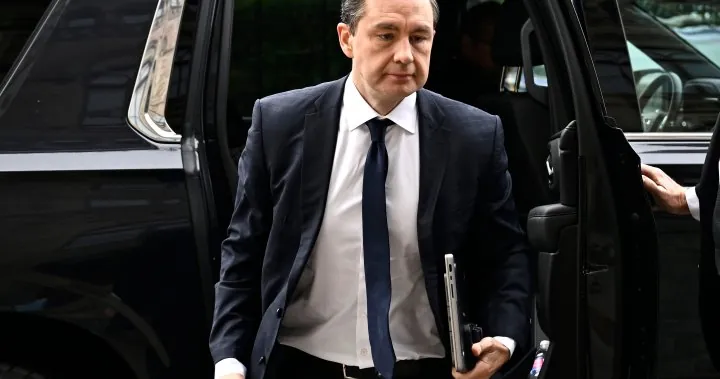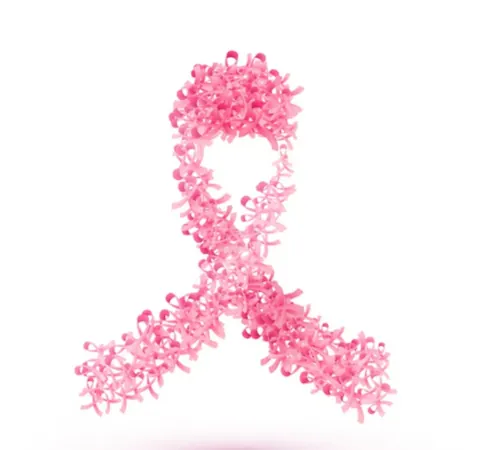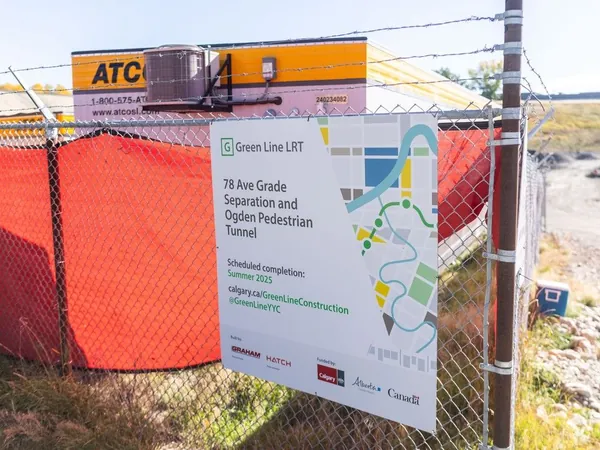
Pierre Poilievre Advocates for Mandatory Treatment for Vulnerable Youth and Incarcerated Individuals
2024-10-10
Author: Emily
In a bold stance, Conservative Leader Pierre Poilievre has voiced his support for mandatory psychiatric and drug treatment for children and prisoners who lack the capacity to make informed decisions regarding their health. This position follows a heartbreaking testimony from the parents of a 13-year-old girl in British Columbia, whose struggles with mental health issues tragically culminated in her overdose in a homeless encampment.
The girl’s parents recounted their desperate attempts to secure necessary treatment for their daughter, who had repeatedly been discharged from care despite their pleas. Poilievre was clear in his belief that she should have been placed in mandatory treatment rather than left vulnerable in such dire circumstances. "There is no question in my mind that she should have been in mandatory, involuntary psychiatric and substance abuse treatment rather than in a homeless encampment," he stated.
Earlier in the summer, Poilievre had expressed an openness to this concept, affirming that he was still examining how such a mandatory framework could be effectively implemented, particularly for adults. His remarks have sparked a broader discussion about the intersection of mental health treatment and legal rights.
Deputy Prime Minister Chrystia Freeland underlined the necessity of compassion when addressing addiction cases while acknowledging that some individuals may not be in a position to make informed treatment decisions. “We need to take a science-based approach, we need to listen to our doctors and health care professionals, and we also need to take a public safety-based approach,” she asserted. Freeland emphasized the importance of ensuring that those in need of help receive appropriate treatment, even when they might be too overwhelmed by their condition to recognize it themselves.
However, Freeland's comments did not clarify her stance on whether those deemed "too sick" should undergo involuntary treatment, leaving a critical question unanswered.
The topic has elicited a mixed response from political leaders, with NDP Leader Jagmeet Singh criticising Poilievre's perspective for lacking alignment with expert opinions and evidence-based practices. Singh emphasized that any treatment initiatives should remain grounded in compassion and guided by expert advice.
Moreover, the Canadian Civil Liberties Association highlighted the significant ethical and civil liberties concerns surrounding involuntary treatment, warning that such measures could infringe on individual rights and potentially breach constitutional safeguards.
As communities across Canada grapple with a burgeoning overdose crisis, some provinces are contemplating or expanding compulsory mental health and addiction care. Alarmingly, data revealed by the federal government indicates that there were 1,906 opioid-related deaths, averaging 21 fatalities per day, from January to March 2023 alone.
As the debate around the best methods of care for the most vulnerable members of society intensifies, one thing remains clear: the conversation surrounding mental health, addiction, and treatment is far from over. Critics and supporters alike will likely continue to clash over the ethical implications and the best paths forward for providing necessary care to those in dire need. Stay tuned as this critical issue continues to evolve!









 Brasil (PT)
Brasil (PT)
 Canada (EN)
Canada (EN)
 Chile (ES)
Chile (ES)
 España (ES)
España (ES)
 France (FR)
France (FR)
 Hong Kong (EN)
Hong Kong (EN)
 Italia (IT)
Italia (IT)
 日本 (JA)
日本 (JA)
 Magyarország (HU)
Magyarország (HU)
 Norge (NO)
Norge (NO)
 Polska (PL)
Polska (PL)
 Schweiz (DE)
Schweiz (DE)
 Singapore (EN)
Singapore (EN)
 Sverige (SV)
Sverige (SV)
 Suomi (FI)
Suomi (FI)
 Türkiye (TR)
Türkiye (TR)